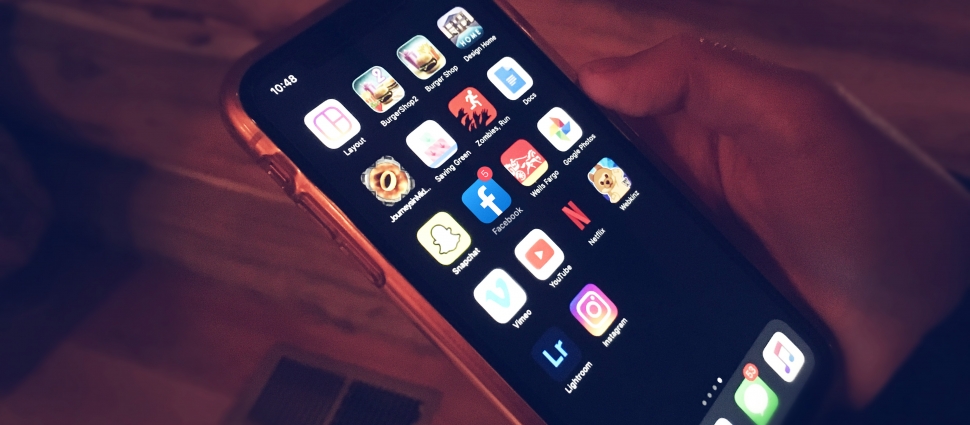What Happens If You Stop Being Bored?

You know what scares me the most? Boredom. And I have a sneaking suspicion you feel the same way, especially if you’re under thirty. I’ve been working with teenagers for the past ten years, and people consistently ask: "What do you think is the biggest challenge teenagers are facing today?" The short answer is “Smartphones”; maybe the expanded version would be “loss of boredom.”
A Microsoft study discovered that the average human attention span has fallen from twelve seconds in the year 2000 down to eight seconds (shorter than a goldfish). Another study by Common Sense Media found that teenagers on average are consuming around eight hours of media per day. Leadership guru Simon Sinek compared the dangers of unrestricted social media use to the previous generation leaving their teenager the key to the liquor cabinet.
Despite a rising mountain of evidence decrying the addictive, dopamine-generating, narcissism-fostering, depression-incubating effects of cell phones and social media, we don’t appear to be slowing down anytime soon. And why should we? Who among us would ever want to go back to the dark ages of sitting in an empty room, waiting for your friend or family member to return from the bathroom, and having to just sit there for two or three minutes... waiting? In other words, who among us—especially those who have grown up in the internet age—would ever willingly submit to being bored for even thirty seconds? As futurists are lining up to predict how the pandemic will shape the trajectory of our economy and lifestyle, there is one thing no one is debating: Screen time isn’t about to go down.
The advantages of our modern era are literally right beneath our noses. For all the disruption we’ve experienced, internet connectivity has allowed us to flatten the curve while sustaining economic activity at a level unthinkable a mere fifteen years ago. The more digitally adapted and dependent you’ve become, the more you’re thriving right now. Adapting to a world-shaping technology, such as the internet, is not something to fear or lament. Often, however, during these seismic industrial-technological shifts, losses beyond the mere discomfort of change can lurk latent, manifesting themselves in subtle ways long after the damage has been done.
One of the great losses of the social media age is boredom. Ironically, the most obvious symptom of one’s loss of boredom-endurance is how quickly and frequently one complains of being bored. Of course, fear of boredom or the fear of missing out ("FOMO") is not peculiar to our time or some new terror unleashed upon the West. Blaise Pascal, writing in the 17 century, said he "discovered that all the unhappiness of men arises from one single fact, that they cannot stay quietly in their own chamber.”
So what happened back when we used to get bored? What have we lost? In large part, we've lost Humility.
When you immerse yourself in a cadre of apps, entertainment, and stimuli all tailor-made and customized to orbit around you, what exactly does that make you? It turns you into a demi-god. At the very least, it enhances the deceptive power of our imagination to make ourselves into celebrities. We can all escape to and live in our own Truman Show realities. We can joyfully slip into a fabricated world where everyone is fascinated by what I eat, what I wear, and what my favorite hygiene products are.
We happily, though unwittingly, exchange our real, three-dimensional world for a digital one. Our digital world looks very much like the real one, except that it’s customized around us. It’s a place where I’ve already filtered out the people, places, and things which I don’t find interesting, so I’m far less likely to get bored. Thus our digital worlds deceive us. They promise to expand our horizons, while in truth our worlds shrink to isolated stages of familiar props. The props resemble things from the world outside, “And,” we say with a shrug, “I suppose that’s good enough.”
On the other hand, boredom offers perspective. If you force yourself to sit in your boredom, that means you have to lift your head up from that device in your hand. You have to simply be, and watch the rest of the world continue to go by. You have to reckon with the scads of people, the innumerable masses of people who don’t know you, who don’t care about you, who probably never will care about you. Boredom forces you to interact with the beautiful, mysterious “otherness” of the world outside of you, a world stubbornly unbending to your concerns and desires.
Boredom opens the door for us to contemplate rather than consume—to reflect instead of rushing.
Justin Poythress (MDiv, WTS) is Assistant Pastor at Christ Community Church in Carmel, Indiana.
Related Links
"A Bored Generation?" by Derek Thomas
"The Seven Deadly Sins in a Digital Age: Sloth" by Brad Littlejohn
"The Great God Entertainment" by A.W. Tozer
Why Johnny Can't Preach by T. David Gordon
C.S. Lewis: Apologetics for a Postmodern World by Andrew Hoffecker




